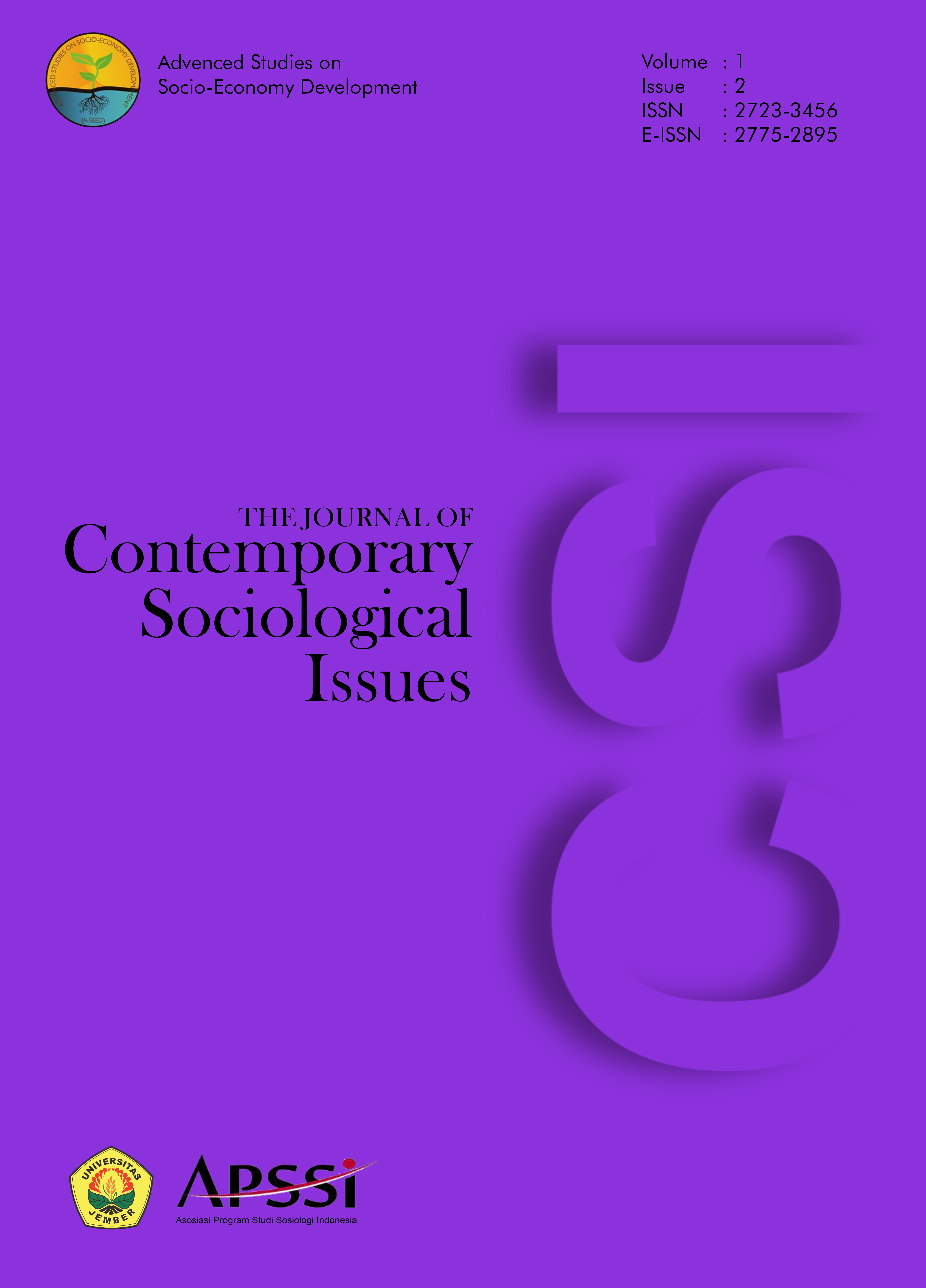Poverty, Cybercrime and National Security in Nigeria
Abstract
The number of people living in poverty in Nigeria continues to grow at an exponential rate, making Nigeria the poverty capital of the world. As a result, cybercrime has become a haven for youths. The festering of cybercrime increases the chances of cyberterrorism and proliferates radicalization and hate speech – all of which pose a danger to national security in Nigeria. This study adopts an analytic approach to explore the interplay between poverty, cybercrime, and national security in Nigeria. The findings reveal that poverty is a major driver of cybercrime in Nigeria, and cybercrime poses a serious threat to national security. It shows that, with the prevalence of poverty, deprivation, and inequality, many Nigerian youth turn to crime for creating Nigeria as their desired. Cybercrime undermines national security by exposing individuals to violence, cyberespionage, cyberstalking, and manipulation. The study, recommends that decisive policies targeted at reducing poverty should be developed in Nigeria and that youths should be educated on the dangers of cybercrime and its incapacitating effect on national security. Moreover, cybersecurity should be prioritized by the Cyber Advisory Council. Meanwhile, cybercriminals must be dealt with under the full force of the law, establishing justice and serving as a deterrent to perpetrators who intend to commit crimes.
Keywords: Cyber Crime, National security, Poverty, Scam, Unemployment
References
Haughton, J & SR Khandker, Handbook on poverty and inequality (Washington DC: World Bank, 2009).
Ibrahim, Jibrin & Dabugat Kop’ep, Rural banditry and hate speech in northern Nigeria: Fertile ground for the construction of dangerous narratives in Nigeria, in mohammed kuna and ibrahim ibrahim (ed). rural banditry and conflict in northern nigerian ed (Abuja: Centre for Democracy and Development CDD, 2016).
Peter Townsend, Poverty in the United Kingdom: A survey of household resources and standards of living (Harmodsworth: Penguin Books Ltd, 1979).
Rudolph Rummel, “Frustration, deprivation, aggression, and conflict helix.” In: Understanding conflict and war (Beverly Hills, California: Sage Publications, 1977).
S Ezea, Ezea, S. (2017). The prevalence of internet fraud among Nigerian youths. Nigeria: The Guardian Saturday Magazine (Nigeria: The Guardian Saturday Magazine, 2017).
Schjolberg, Stein & Solange Ghernaoti-Helie, A global treaty on cybersecurity and cybercrime (Norway: AiTOslo, 2011).
T Ogunseye, Ogunseye, T. “Boko Haram: Intelligence operatives investigate Nigerians in the UK.” The Punch 5 (2012). (The Punch 5, 2012).
Ted Robert Gurr, Why Men Rebel (Princeton: Center of International Studies, Princeto University, 1970).
United Nations, The real wealth of nations: Pathways to human development (New York: Palgrave Macmillan, 2010).
Awosusi, Oladotun Emmanuel & Ogbuleke Loveday Enyinnaya, “Critical thinking in information technology and management for national security in Nigeria” (2019) 3:3 Asian Journal of Applied Science and Technology 41–52.
Bonaventure Chigozie Uzoh, “Poverty–conflict nexus: The Nigerian experience” (2016) 3:10 The International Journal of Social Sciences and Humanities Invention 2832–2838.
Chioma Chigozie-Okwum, Michael Daniel, & Ugboaja Samuel, “Computer forensics investigation: Implications for improved cybersecurity in Nigeria” (2017) 6:1 International Journal of Science and Technology 59–73.
Daniel Semeniworima, “Hushpuppi arrested: Nigerian, Raymond Igbalode or Ramon Olorunwa Abbas wey FBI wan sentence for fraud dey MCC Chicago, Federal Bureau of Prisons BOP in Chicago, Illinois USA”, BBC (2020), online:
David, Alao, Osah Goodnews & Eteete Michael, “Unabated cyber terrorism and human security in Nigeria.” (2019) 15:11 Asian Social Science 105–115.
Eniola Akinkuotu, ““$6.3m fraud: Six Nigerians placed on the FBI’s most-wanted list.”, online:
Fassassi, Amzath & Claude Akoussan, “Cybercrime in Africa: Facts and figures”, online:
Holmes, Kim R, “What Is National Security?” (2015) 10.
Ibrahim Umaru, “The impact of cybercrime on the Nigerian economy and banking system. Nigeria Deposit Insurance Corporation”, (2019), online:
Iheanacho, Agboti & Nnam Uchenna, “An assessment of the relationship between crime and social exclusion in Nigeria” (2015) 8:1 International Journal of Research in Arts and Social Sciences 157–164.
Jackson, Jack & Jack Jackson, “Cybercrime and the challenges of socio-economic development in Nigeria” (2016) 14:2 JORIND 42–49.
John Olayemi Odumesi, “A socio-technological analysis of cybercrime and cybersecurity in Nigeria” (2014) 6:3 International Journal of Sociology and Anthropology 116–125.
Michael Jacobson, “Terrorist financing on the Internet” (2009) 2:6 CTC Sentinel 17–20.
Nnam, Uchenna, Agboti Iheanacho, & M Otu, “Inadequate motivation as a reason for police officers’ ineffectiveness in policing contemporary Nigeria” (2013) 15:2 South-South Journal of Culture and Development 67–86.
Okoli, Al Chukwuma & Idom Augustine Mogom, “The internet and national security in Nigeria: A threat-import discourse” (2018) 6:1 Covenant University Journal of Politics & International Affairs 20–29.
Okoli, Al Chukwuma & Okpaleke Francis, “Cattle rustling and dialectics of security in northern Nigeria” (2014) 2:3 International Journal of Liberal Arts and Social Science 109–117.
Olabanji, Olukayode & Ese Urhie, “Insecurity and socio-economic development in Nigeria” (2014) 5:1 Journal of Sustainable Development Studies 14–20.
Olubukola Stella, Adesina, “Cybercrime and poverty in Nigeria” (2017) 13:4 Canadian Social Science 19–29.
Oluwadare, Taiwo & Igbekoyi Kayode, “Prevalence and consequences of cybercrime perpetrated by students in public tertiary institutions in Ekiti state” (2019) 2:1 International Journal of Arts, Languages and Business Studies 211–224.
Omodunbi, Bolaji et al, “Cybercrimes in Nigeria: Analysis, detection, and prevention” (2016) 1:1 FUOYE Journal of Engineering and Technology 37–42.
Osho, Oluwafemi & Agada D Onoja, “National Cyber Security Policy And Strategy Of Nigeria: A Qualitative Analysis” (2015).
Rawyat Deonandan, “Defining poverty: A summary of competing models” (2019) 2:1 Journal of Social and Political Sciences 17–21.
Red24, “Cybercrime top 10 affected countries”, (2015a), online:
———, “Cybercrime Top 10 countries where attacks originate”, (2015b), online:
Sam Ogunlere et al, “Impact of cybercrime on the Nigerian economy” (2013) 2:4 The International Journal of Engineering and Sciences 45–51.
Samuel Akindele Ajala, “Fight against cybercrime: Nigeria ranked 57th globally”, (27 July 2019), online:
The Software Alliance, “Seizing opportunity through license compliance: BSA global software survey”, Washington: BSA (2016), online:
Tope Shola Akinyetun, “A theoretical assessment of Boko Haram insurgency in Nigeria from relative deprivation and frustration-aggression perspectives” (2020) 1:2 African Journal of Terrorism and Insurgency Research 89–109.
Ufuoma, Awhefeafa & Ohwomeregwa Ogechi, “Appraising the laws governing the control of cybercrime in Nigeria” (2020) 8:1 Journal of Law and Criminal Justice 30–49.
William Ukpe, “Hushpuppi extradited to the United States”, (2020), online:
Yakubu Ajiji Makeri, “Makeri, Yakubu Ajiji. 2017. ‘Cybersecurity issues in Nigeria and challenges.’ International Journal of Advanced Research in Computer Science and Software Engineering 7(4): 315-321” (2017) 7:4 International Journal of Advanced Research in Computer Science and Software Engineering 315–321.
“Letter from Africa: Why Nigeria’s internet scammers are ‘role models’”, BBC (2019), online:
“Nigerian scams stats for 2020”, Scamwatch (2020), online:
“Saharareporters 2020. ‘Why we arrested Hushpuppi —Dubai police.’”, Saharareporters (2020), online:
African Cyber Security, 2019 global threat report: Adversary tradecraft and the importance of speed., by African Cyber Security (2019).
Federal Government of Nigeria, Cybercrime Act (2015).
Naijalebrity, “Hushpuppi biography: Arrested, age, real name, income, controversy, shoes, cars, house net worth”, (2020), online:
NBS 2019, 2019 poverty and inequality in Nigeria: Executive summary, by NBS 2019 (Abuja: Proshare, 2019).
Signe, Landry & Signe Kevin, “Global cybercrimes and weak cybersecurity threaten businesses in Africa”, (2018), online:
Simon Kemp, Digital 2020: Global digital overview, by Simon Kemp (2020).
Tope Aladenusi, Solving national security challenges with information technology (2014).
UNDP 1994. Human development report 1994 (New York: United Nations: UNDP, 1994).

This work is licensed under a Creative Commons Attribution-ShareAlike 4.0 International License.









